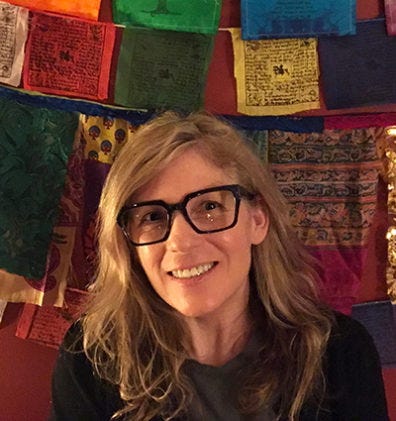This bonus newsletter is a monthly feature for paid subscribers, the eighth in the series. These extras showcase edited interviews with someone whose work intersects in some way with this newsletter’s focus—place, history, writing. I hope you enjoy this one and those to come.
Introduction
A decade or so ago, I met Debbie Lee, a professor of literature and creative writing at Washington State University, a neighboring university. Although the gap between our academic backgrounds is substantial, our interest in wild places and good writing overlaps. After establishing herself academically, she decided to try more creative writing, eventually earning an MFA. Debbie is not only a respected scholar but also a highly regarded writer of creative nonfiction, including her memoir, Remote. Both of us grew up in Western Washington, spent decades on the Palouse, and returned to Western Washington and are adjusting and finding our way back into these wetter landscapes.
(NOTE: the following interview has been edited for clarity and brevity.)
Adam Sowards
Normally, I start with the question, how do you describe your work? But I know that your work has evolved quite a bit over the course of your career. So I'm wondering if you could describe and explain that trajectory and change.
Debbie Lee
I started out as a scholar in nineteenth-century British poetry and spent a lot of time time in England in archives researching the social history of England. I wrote a book about slavery and the romantic poets. I wrote a book about poor illiterate women and the British romantic poets, and another book about scientific exploration and the colonial mission.
When I finished my third book in British romanticism, my grandmother died and left me a box of materials, and everything in the box pointed to this land in Idaho and Montana called the Selway-Bitterroot Wilderness that I’d never heard of.
I was very close with my grandmother. I did not know that she had lived there as a young bride and had two kids there, or that my grandfather, whom I never knew, was a forest ranger back there. I felt like her giving me this box full of materials, which was essentially an archive, was a sign for me to switch my research and try to figure out what this place was and what happened in the family history. I knew she was really unhappy in her marriage, but I never knew why. I think using the box as a way to refocus my work was also part of my grieving her death.
I switched my career and became an oral historian and archivist of the American West, specifically wilderness. I did a big oral history project around wildland land protection with the US Forest Service and two universities. Then, I wanted to write a personal account of my own exploration into this place, but I realized that I didn't really know how to write personal narrative. So, I went back to school at 50 years old and got my MFA and learned how to write in a less academic way.
That project, a memoir of family and place, came out in 2020 during the pandemic. It was a book called Remote: Finding Home in the Bitterroots. I think it resonates because it's about my mom, my grandma, and myself—but also about this amazing piece of wild land.
Learning to write personal narrative and my own experiences into projects has given me a lot more hope for writing in general.
Two years ago, I got a deadly cancer diagnosis, and after a year of treatment and surgeries, I’m cancer-free. This experience has changed my writing practice. I'm experimenting with poetry and trying to move that lyrical voice into my narrative writing.
Learning to write personal narrative and my own experiences into projects has given me a lot more hope for writing in general.
Adam
Your work from the beginning has been historical, but you weren't trained as a historian, so I'm interested in how you got interested in history, how you think about history, how you trained in it, did you self-train? Can you talk to me about history?
Keep reading with a 7-day free trial
Subscribe to Taking Bearings to keep reading this post and get 7 days of free access to the full post archives.





